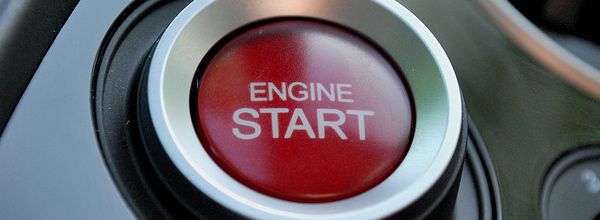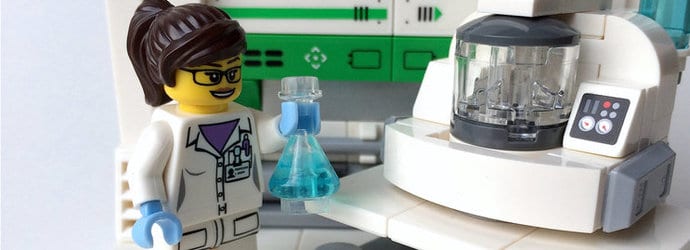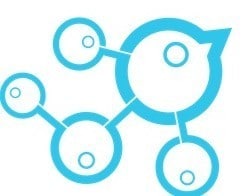Clinical Trial Coordinator, Clinical Study Coordinator, and Clinical Research Coordinator are all names for the same job and refer to the person responsible for the day-to-day running of human trials.
Usually when I tell someone that I’m a Clinical Study Coordinator, they have no idea what that means. I guess it’s like when someone tells me they’re a “Business Development Coordinator” and I smile back politely hoping they’ll explain without me having to ask!
First of All, What is a Clinical Study or Trial?
Any new therapeutic agents like a drug, or any medical devices, like a glucometer, to be approved for use must first goes through the clinical trial process. Approval comes from large government bodies, such as the FDA in the US. Initial testing may begin in cells or in animals but eventually they go through a series of small and eventually large scale trials to monitor their effects in people.
People Involved in a Clinical Study or Trial
There are certain players who are usually present in a trial but it can vary. Let’s take an example. You are working for a large pharmaceutical company called Future Therapeutix and you’ve been told about a new drug for blood pressure that has been tested in animals and will now be tested in humans. To conduct a trial, Future Therapeutix (the sponsor) enlists the help of a PI (Principal Investigator) at a University, who is an MD and qualified cardiologist has experience in conducting clinical trials of this type. The PI may employ lab staff (medical technologists, research assistants/associates), physicians, trial monitors (called Clinical Research Associates or CRAs) and Clinical Study Coordinators and potentially others with specialized skills, such as phlebotomists.
What the job is day-to-day
The Clinical Study Coordinator in this example will be have many responsibilities including:
- Study protocol submission (and sometimes design) to an Institutional Review Board (IRB).
- Recruiting subjects to the trial using flyers, advertisements, letters, etc.
- Working with physicians, pharmacists, lab staff, the CRAs, the sponsor, potential and enrolled subjects, an IT team and sometimes a legal team.
- Consenting potential subjects/participants, explaining the trial simply and answering their questions and concerns as well as checking in with them regularly to monitor compliance with the study guidelines.
- Collecting, managing and maintaining all study related paperwork and correspondence. This involves a lot of writing, filing, compiling and typing.
- Following the set of study guidelines set out by the International Conference on Harmonization to ensure the trial is carried out using Good Clinical Practice and according to the laws of the country on how clinical trials must be conducted.
…..to name but a few!
This may sound like a lot of very different things and it’s because of this variety that my job changes every day! One day I’m meeting with a potential subject and helping them to complete study questionnaires, the next I’m in a meeting with a sponsor from across the world who needs help designing a clinical trial, the next I’m meeting with our CRA and PI to plan a grant application, and the next I’m having coffee with a group of nurse practitioners who are interested in helping to recruit for a study. Every day is different and you always have several balls you’re trying to juggle.
What are the Skills and Qualifications Required?
The qualifications you require completely vary with each position from only a high school diploma to a nursing license to a Master’s Degree. Generally speaking you’ll need a Bachelor’s in a related field, either science, nursing, or public health, and ideally a master’s degree as this helps you advance through the employment ladder. Some employers also ask for previous clinical trial experience so some people will work as a trainee or intern for a few months just to get experience. A knowledge of medical terminology is very helpful. There are types of accreditation you can get, such as CRC training from ACRP (Association of Clinical Research Professionals) that can be very helpful when you’re trying to stand out but these can be very expensive and often require a certain amount of experience before you can sit exams.
Who Does This Role Suit?
In my experience, having a PhD is always helpful as it gives credibility and very valuable skills, such as understanding organizational skills and experience with and an understanding of the research and grant application processes but in this job it’s usually more helpful to have a background in health.
In terms of the personality type for this job the first thing I can think of is that you must be honest and have integrity above all else. You’ll also need to be okay with paperwork and willing to be maintain a humble posture of learning, particularly the rules you’ll need to follow for every single thing you’ll do in a trial. Here are some others:
- You shouldn’t mind paperwork, there is going to be a lot.
- You should be organized, meticulous and thorough.
- It really helps if you are someone who takes pride in your work.
- You need to be compassionate and caring; you’ll be involved with speaking directly to patients/subject who main be dealing with a serious illness.
- You should be efficient and professional.
- You need to have a willingness to keep learning.
- There is a lot of responsibility, and therefore you should be someone who thrives on this.
- Self-motivation is an absolute must.
- You need to be able to think ahead and foresee and plan for potential problems.
- You should be detail-orientated, but also able to see the complete picture.
- Basic computer skills are essential (Word, Excel, etc.) and device skills (being able to fiddle with MiFis, study devices, iPhones, laptops, etc. to help troubleshoot problems for subjects) but experience with data handling software like SAS and R and design software like Adobe Illustrator and Photoshop will help you stand out.
- Strong-willed. Some subjects can be rude, especially if you’re asking them if they’d like to take part in your study and they’re in hospital ill. The CRAs and sponsor can also be quite critical and you’ve got to learn not to take it personally.
Patient. Subjects may call you repeatedly with the same questions, they may keep neglecting to take their medication resulting in endless forms of protocol deviations, they may get angry at you if they don’t meet the study’s inclusion criteria. You learn to grow a thicker skin while still being empathetic.
Good Points
I feel like I’ve developed so many of my skills in this job. Coming from a background in basic research was very helpful because I can read through and simplify the science jargon behind a study. It also helps with writing up protocols, reading the literature on various diseases, and with working with the lab staff in the trial. I’ve also had the chance to exercise my writing skills and to relearn Photoshop and Illustrator.
I’ve also become very good at thinking ahead, at noticing details, and with working from people many specialties and backgrounds. You learn how to be compassionate, how to help subjects feel at ease, how to read other people and figure out the best way to work with them and how to be very professional but still friendly and approachable. I thrive on responsibility and in really thinking through possibilities so that aspect of the job is very enjoyable
Bad Points
There have been days when I’ve had to recycle thousands of sheets of paper that were never used ?. Every single time you make a mistake on a document, you have to remember to cross it out, initial and date it. Every. Single. Tiny. Mistake. There are many rules that you will inevitably learn the hard way and end up making a bunch of extra work for yourself. You may feel tired and grumpy but you need to put on your best face for a patient coming in. You’ll make mistakes and there will be moments of dread as you try to figure out how bad the mistake was. On the plus side, the CRA’s job is to help find any mistakes and help you to correct them (you’ll need to learn to be thankful rather than annoyed by your CRA’s nitpicking!) You’ll also be questioned a lot about why you’re doing things the way you’re doing them so your self-esteem may take an occasional hit.
Hopefully this has helped you see into the world of a Clinical Study Coordinator. If you have any questions or comments leave us a message below.
Thank you for reading!







